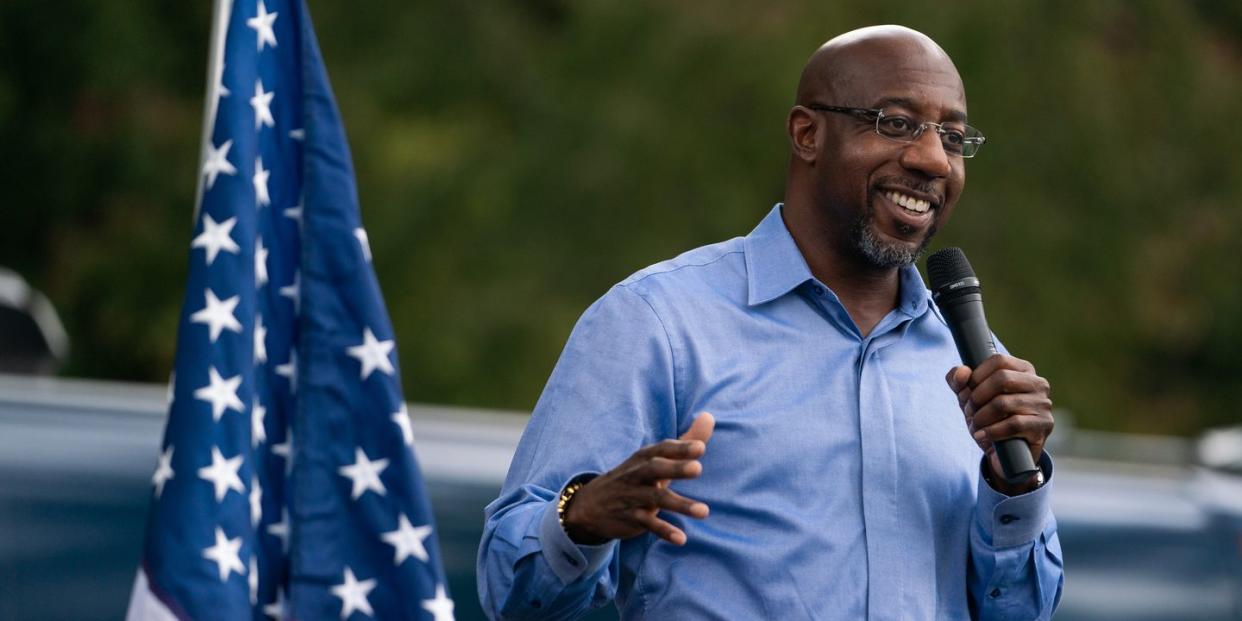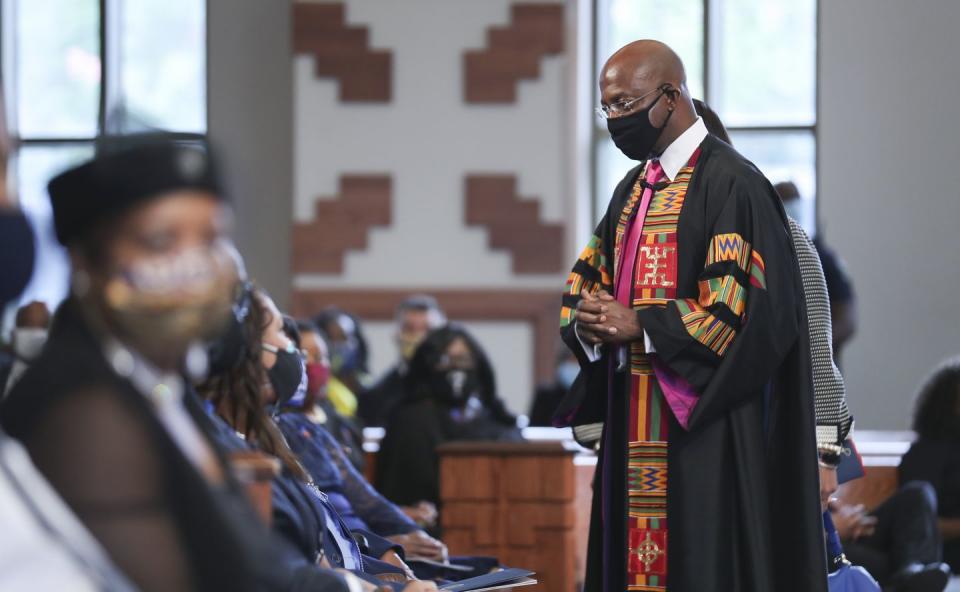Reverend Warnock's History as a Sexual Health Educator Prepared Him for the Senate

- Oops!Something went wrong.Please try again later.
Making health care a defining feature in his final campaign push, Raphael Gamaliel Warnock, who will face off against Republican Kelly Loeffler in a Senate runoff election in January, pulls from a rich background of and commitment to quality health care access. But more than a general belief in protecting the health and well-being of others, Warnock learned at an early age the importance of having clear policies that cover all aspects of health care.
Virginia “Ginger” Floyd, M.D., M.P.H., recalls meeting Warnock when he was a student looking for part-time work. “[Raphael was a] young brother, who was as bright as he can be,” says Floyd. As the director of family health for the Georgia Department of Human Resources, Floyd was connected to Warnock through his high school in Savannah. “He became my first peer counselor, and his job at that time was to prepare and write the first peer counseling handout for Georgia.”
The project would be the first of many delicate dances Warnock would have with the topic of sexual and reproductive health. Floyd describes Warnock’s task as a balancing act between providing enough information for teens to be informed but not relaying anything considered age inappropriate. Warnock returned to the role during his tenure at Morehouse College, expanding upon his initial work and organizing a team of peer counselors across the state.
Glimpses of his high school and college experiences with sexual health can be seen across his work in the church. Before taking the helm as senior pastor at Ebenezer Baptist Church, Warnock engaged the faith community around HIV/AIDS as pastor of Douglas Memorial Community Church in Baltimore. During an interview with Project Q, Warnock pointed to Georgia’s status as the state with the third-highest number of HIV cases as reason to fight for equity in prescription drug coverage, including PrEP, and increased funding for HIV and AIDS prevention.
Floyd says that Warnock’s commitment to community and sexual health is grounded in a Black liberation theology. In a 2013 lecture for the Yale Divinity School, Warnock described the Black liberation theology as being rooted in fighting oppression in all forms. “It really is what undergirds his understanding of health and economic decision making and distributed justice,” Floyd says. “He brings to us his pulpit and his belief that all of these things are connected, and that women have the right to choose, they have the right to have access to a good job and [affordable] health care.”
Building on this background, Warnock has not shied away from conversation of reproductive rights and justice, something advocates have noticed. “When you go through his website, or if you listen to him talk, [Reverend Warnock] didn't forget where he came from,” says Oriaku Njoku, cofounder and executive director of Access Reproductive Care-Southeast, Inc.

Working at the intersection of abortion rights and reproductive justice, Njoku sees having someone whose values align on these issues representing Georgia in the Senate as an opportunity for communities often left behind. “We deserve to have our ideas, hopes, dreams, and wants for policy reflect our lived experiences,” Njoku says. Like Floyd, Njoku sees the interconnectedness between reproductive justice, racial justice, and economic justice as issues impacting Black and other communities of color every day. “It’s really exciting to think about the possibility of having more representation from all of our communities to be able to create, examine, or do away with policy that was never intended to serve us,” Njoku says.
As the executive director of the Atlanta-based Feminist Women’s Health Center, Kwajelyn Jackson shares the desire to see elected officials who not only understand the way communities have been neglected and regulated to the margins, but are willing to promote policies that directly benefit people.
“Supreme Court cases like Planned Parenthood v. Casey [gave] states the ability to add additional restrictions, up to viability … and so I think the desire is to have some federal backstop that would provide guidance or some limits to how far [states] could go,” says Jackson. “One of the things that is endlessly frustrating for many folks who work in reproductive health, rights, and justice is that people's experiences vary so widely from state to state. I'm excited about the opportunity for more stories to be represented, and more real scrutiny to the ways that policy has failed folks, that we have an opportunity to correct.”
Both Jackson and Njoku point to the landmark Roe v. Wade case, noting that it is the bare minimum for protections. “Roe is the floor,” Jackson says. She cites the Women’s Health Protection Act and the EACH Woman Act as examples of federal legislation that could help close a gap in health care. “These legislative attempts provide at least some federal guidance that would prevent the states from completely decimating abortion access in ways that don't even really align with the basic tenets of Roe.”
Floyd sees the opportunity to shift some of the subtle changes in policy that seemingly fly under the radar as a strong case for Warnock as senator. “We always say we need somebody on the inside for those of us on the outside,” says Floyd. "This isn't just about siloed programs. The same way that life is interconnected, the problems are interconnected, and the solutions need to be interconnected.”
You Might Also Like

